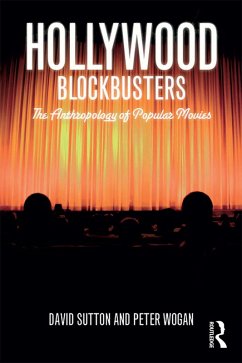Why do 'Jaws', 'Field of Dreams', 'The Big Lebowski', and 'The Godfather' remain strikingly popular in this age of fragmented audiences and ever-faster spin cycles? Hollywood Blockbusters argues that these films continue to captivate audiences because they play upon underlying tensions and problems in American culture.
Dieser Download kann aus rechtlichen Gründen nur mit Rechnungsadresse in A, B, BG, CY, CZ, D, DK, EW, E, FIN, F, GR, HR, H, IRL, I, LT, L, LR, M, NL, PL, P, R, S, SLO, SK ausgeliefert werden.
Hinweis: Dieser Artikel kann nur an eine deutsche Lieferadresse ausgeliefert werden.









